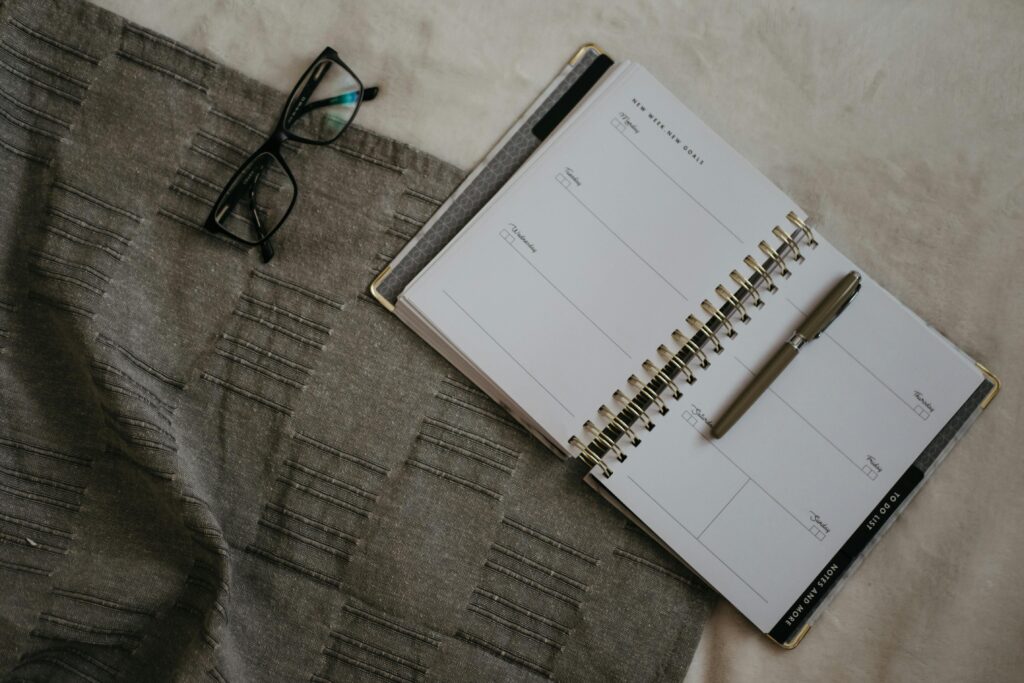
There are all sorts of productivity routines out there. Most of them say something like, ‘Do your most important work first when you’ve just gotten up and are fresh for the day,’ or ‘Get up at 5am and knock out a couple of hours of work before everyone else has started their day.’ Now, there’s nothing wrong with these strategies. They work for a lot of people, but they’re sold as magic bullets, leaving some of us feeling as if we can’t do this, or if it doesn’t work for us for some reason, that there’s something wrong with us.
Welp, I’m here to tell you that this advice doesn’t work for me, and I still manage to be productive. So, I thought I’d talk a little bit today about how I structure my days to maximize my productivity, despite having pretty intense ADHD. My goal is not to sell you on a specific system, but to give you permission to build a system that works for you.
The advice to get the most important work of the day done right when you get up absolutely does not work for me. It takes my brain several hours to fully come online, and this is a struggle shared by many other neurodivergent people. The first thing I need to do when I get up is (after coffee, of course) to get in touch with my body. I do this by engaging in some sort of exercise. Sometimes this is an hour-long walk at a nearby park or hiking trail, other times it is a two-hour gym session. This gives my brain time to wake up, while I bleed off a lot of my incipient hyperactivity, giving me a greater ability to focus the rest of the day. I have to tire my body out so that my brain can take over. I also use the mornings as time to take care of any errands I have to run and tend to schedule any necessary doctor’s appointments during this time. Basically, any busy-work I need to get out of the way happens here, leaving me free during my prime creative temporal real estate.
I’ve discovered that I am most able to be mentally productive between the hours one 1 and 6 pm. That’s when my ADHD meds are most effective, and if I’ve exercised in the morning, my body is tired enough to get out of the way. Here, I can work in two-hour blocks. Two hours is about as long as I can work on any one thing. So, this is when my writing gets done in the first productivity block. Sometimes, I’ll take a thirty-minute break and then have a second productivity block, but this cannot be more writing or even something super similar like editing. It needs to be a completely different task. Usually, this is when I work on graphic design projects. Even though this is still work I’m doing at my desk, it’s using a different enough part of my brain that I don’t exhaust myself the way I would if I were working on another intense language-based activity. I can also do plotting and planning during this second block. Other days, it’s when I have zoom meetings with my writers’ group.
Once this productivity block is over, I don’t really ask for any more work out of myself. I have dinner. Spend a couple of hours reading before, in the summer, taking another short walk when it gets cooler and is still light out. Later in the evening I shower and then watch some tv. It used to make me feel guilty that I couldn’t use the evenings for productivity as well, but my ADHD meds wear off at about six o’clock, and I just don’t have the focus to do anything like that. Occasionally in the evenings I will do social things, like attending meetings and game nights with out local queer groups, playing D&D, and other opportunities that might come up, like selling books at our monthly community night markets.
This specific type of schedule might not work for you, but the principle I’ve applied, of finding when my natural physical and mental energy aligns with the types of productivity I need to accomplish, can be something you apply in your own life. I know not everyone is in charge of their own schedule to the extent that I am, but if you can find even thirty minutes in your prime energy zone, and protect those minutes like they’re the gold in your dragon hoard, then it can make a really huge difference in your life and what you can get done.
I hope this post functions as permission to structure things in a way that works for you, no matter what other advice you may be getting. You shouldn’t try to fit your unique brain and energy system into someone else’s plan, even mine. You are you, and you will be most productive if you create a system that takes your needs into account. Obviously, most people have more constraints on their time than I have. But if I had given myself permission to do this years earlier, I could have been much more productive many years before I was.
So, figure out what works for you and do your best to create it for yourself, and then protect it. Because it’s important. Your goals are important. Your time is important, and you’re allowed to work for and defend them.
